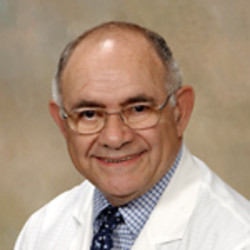This meeting of the American College of Surgeons was a joy with a full course of pomp, black tie affairs, big celebratory dinners reflecting the progress of women in surgery, thoughtful presentations and exhibits that challenged skills and the tolerance of coffee.
The most interesting discussions at major meetings, however, often occur during breaks or at a nearby coffee shop. I was particularly interested in one that included seven surgeons, each a leader in academia, that addressed the shortage of surgeons, not only in the US but around the world.
It’s always the quiet ones that raise the most interesting questions. After all sorts of complaints, George, nursing his coffee gently asked,
- “Why do we need 8 years after high school to get an MD degree when almost every other country takes only 6?
- Why do our medical schools have such high tuition costs? For example, Case Western charges $69,712 per year, while tuition in most countries is either free or very lost cost?
- Why do we need ten lecturers in biochemistry, all too often by speakers with difficult accents, when one teacher could provide an integrated overview in ten lectures?
- Why do we make students take a year of chemistry, another of biochemistry in college, even more in medical school, but only allow 8 weeks of rotation through all of the surgical specialties including thoracic, cardiac, plastic, general, trauma, endocrine, ophthalmology, transplantation, vascular and neurosurgery?
- When will we adapt to new methods of teaching, concentrating on problem solving instead of memory, with open book tests allowing access to the electronic sources of information, just as we now do in real life?
He ended by pointing out that our extra years and high costs did not lead to better outcomes. In fact, the residents in each of the countries with six year programs lived longer, had far better maternal mortality figures and paid significantly less for their medical care. In addition, those plans, paid through taxes, cost about a third less than they did in the US.
It took a while before someone dared to reply. George had, obviously, given the matter a lot of thought. Since we did not have much time before getting back to the next session, we asked him whether he had also considered answers to his complex challenges.
As he stood up, he said that the answers were available in the schools in Japan, Germany, the UK, and it was time we learned from those examples.
We agreed. Unfortunately, I heard no plans of action then or since the meeting.
Dr. Pories has no conflicts of interest to report.
Image by GoodStudio / Shutterstock







